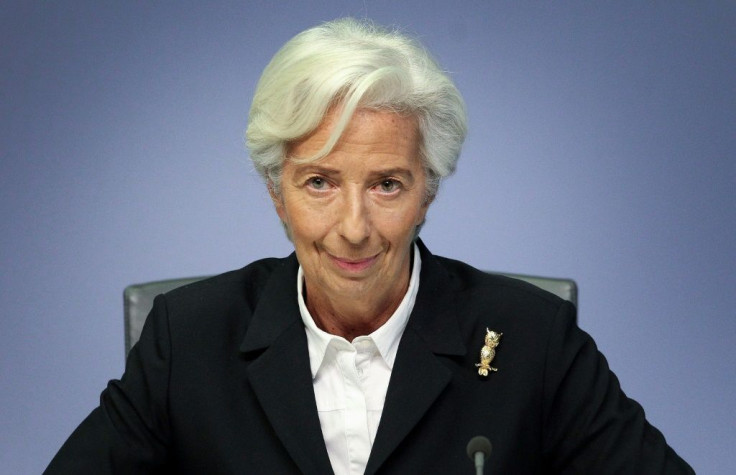ECB's Lagarde To Seek 'Diplomatic Path' After German Court Ruling
European Central Bank chief Christine Lagarde will prefer a "diplomatic path" to a high-stakes showdown with Germany's Constitutional Court after a critical ruling, a central bank source said Wednesday.
Judges in Karlsruhe demanded that the ECB's governing council "adopts a new decision" demonstrating that its "quantitative easing" (QE) purchases of government bonds are "not disproportionate" to its price stability goal.
Unless an explanation is forthcoming within three months, they will ban the country's powerful Bundesbank central bank from participating in QE -- potentially undermining the policy's effectiveness even as it has been extended to battle the coronavirus pandemic.
Lagarde "will seek a diplomatic solution that protects the ECB's independence while satisfying the judges' demands," the central bank source told AFP.
The former French finance minister, IMF chief and corporate lawyer "does not want to escalate the conflict," the source added.
German judges demanded in particular more details about the pros and cons of the ECB's 2.2 trillion euros ($2.4 trillion) of government bond purchases since 2015, under a programme known by the initials PSPP.
But four unnamed members of the governing council told the Financial Times Thursday that "they were determined (the ECB) should not respond directly to the German court, arguing such a move would impinge on the central bank's independence and expose it to pressure from other national courts".

On Tuesday, the ECB issued a statement simply saying that it "takes note" of the German decision, without committing to meet the judges' demands.
Governors remained "fully committed to doing everything necessary" to preserve price stability -- the ultimate justification for QE -- they added.
The central bank had planned to launch a wide-ranging review of its monetary policy strategy this year but has put it on hold because of the coronavirus pandemic.
In a statement in January, it said the exercise would cover "the effectiveness and the potential side effects of the monetary policy toolkit developed over the past decade".
Over that period, the ECB matched other major central banks like the US Federal Reserve and Bank of England by launching QE in the wake of the financial crisis.
The central bank source told AFP that this review "could be carried out without delay, with its results circulated to a broad audience".
That could represent a way out of the clinch with the German court for the ECB without sacrificing its vital independence -- or submitting to national rather than European jurisdiction.
© Copyright AFP 2024. All rights reserved.





















